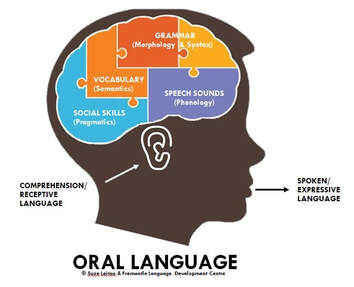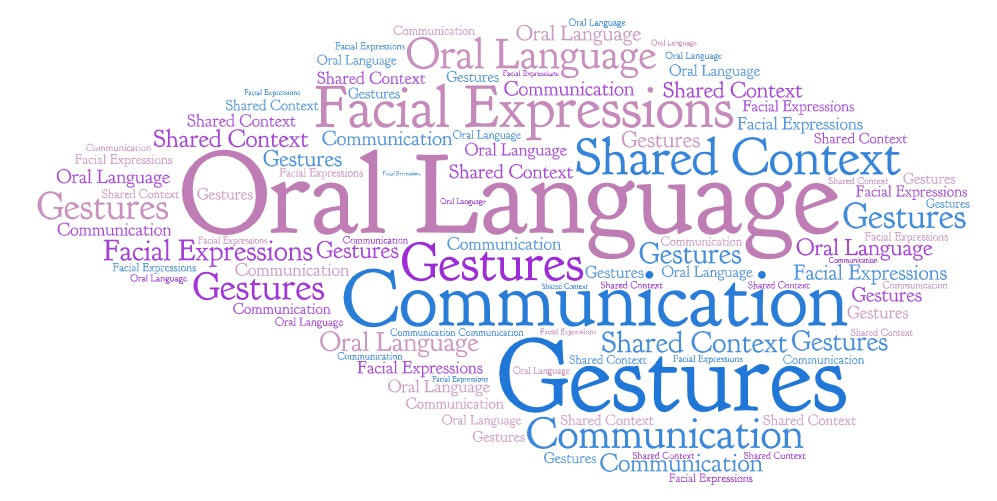Oral Language
Description
Oral language is also known as spoken language. This includes speaking and listening as well as body language and facial expressions.
Why is it important??
- Oral language is what our written language is based upon. If a person is unable to understand oral language, then they will not be able to understand written language. Most students have a vocabulary of 13,000 words by the time they start kindergarten.
- A child's brain develops the most in the first five years.
- The average child from a professional household hears 215,000 words per week, a child from a working-class household hears 125,000 words per week, and a child from a low-income household hears 62,000 words per week. This difference in the number of words heard by a child in a household greatly affects a Childs' vocabulary and word bank.
For more information, please click on the links below.

Picture from the Fremantle Language Development Centre
References
- Oral Language for Kindergarten. NC DPI. (n.d.). Retrieved July 30, 2022, from https://www.dpi.nc.gov/students-families/parents-corner/literacy-home-digital-childrens-reading-initiative/kindergarten/oral-language-kindergarten
- Bear, D. R., Invernizzi, M., Johnston, F. R., & Templeton, S. (2020). Words their way: Word study for phonics, vocabulary, and spelling instruction (7th ed.). Harlow, United Kingdom.
- User, S. (n.d.). Fifty top literacy statistics. Ferst Readers. Retrieved July 30, 2022, from https://ferstreaders.org/resources/fifty-top-literacy-statistics

